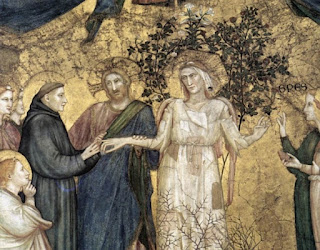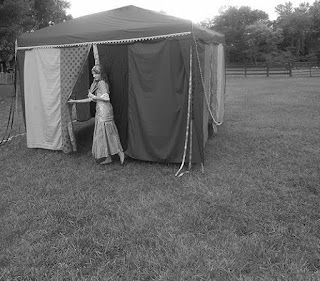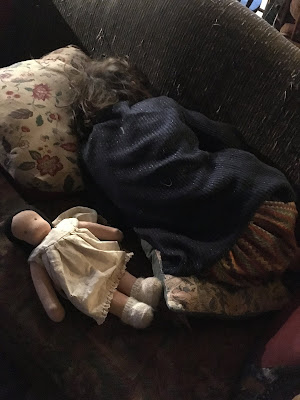The Search for Lady Poverty
Most
everyone is familiar with St. Francis, that most gregarious and universal of
Catholic saints, who exploded into a too-tired Christian culture with the force
of a bomb, a weapon of mass construction. If you know a little bit more about
him, you will know that his odyssey into sanctity began with an obsession with
a lady no one had met, the Lady Poverty. All artistic depictions of her fail,
and of the many mysterious and prophetic things that Frenchie Bernadone said
and did, this was by far the most mysterious. He directed all the passions and
longings of a lover towards her, extolling her loveliness and seeking her amorously.
Like the medieval courtly lovers who sought only to worship a lady espoused by
another, he adored her as the chosen spouse of Christ. Few among Francis’s
followers seemed to share his mad passion, and it was the article of his order
first abandoned by his more conventional followers, but the love affair remains
prophetic even today.
Much as
Christians still yearn for the days of the newborn Church of Acts, where all goods
in joyful innocence were shared in common, so the poverty of Francis still haunts
those of us who consider following the King. Poverty was indeed who Christ as a
babe embraced and her setting-up-house was the early Church, but since then she
has hidden in her cenacle, emerging only when she is needed and no one else
will come.
Alexander
Solzhenitsyn, recalling the grinding poverty of the Russian concentration camp
he endured, had the character of Nerzhin in his novel The First Circle say, recalling the prison food they were given,
Can you say you ate it? No. It was like holy Communion,
you took it like the sacraments... You ate it slowly, from the tip of a wooden
spoon, entirely absorbed in the process of eating, in thinking about eating – and it spread through your
body like nectar… Can
you compare that with the way people wolf down steaks?... It’s not a matter of
how much of it, but of the way you eat. It’s the same with happiness – it doesn’t depend on the actual
number of blessings we manage to snatch from life, but only on our attitude
towards them. (quoted by Joseph Pearce in Solzhenitsyn: Soul in Exile, p. 111)
Doubtless
she comes to minister to the Christian in need and embraces them if they will
accept her, making lack sweet and rags into garments of lilies finer than the
robes of Solomon. And like Christ, her profile most readily emerges only in the
memory, as in Nerzhin’s retrospection. My own young daughter, looking back at
our family’s times of need, observed, “It’s so much more fun to be poor than
rich because you appreciate things more!” She then announced her intention of
raising her own children poor because she wanted them to be enriched by this
treasure.
So who is
this elusive Lady and why should we care? I have long wondered since I happened
upon the fragmentary prayer that opens this journal. For over two decade I have
pondered it and prayed to come to know her better. I feel compelled to share
this haunting in hopes that it will provide a way out of the tangled overgrown
wilderness we find ourselves in and lead us to a better grasp of the Christ who
loved her.
Lord, show me Poverty
Whom You loved so dearly.
Merciful Jesus, have pity on me.
I am full of yearning for my Lady Poverty.
I can find no peace without Her.
You, Lord, it was, who first aroused love for her in my heart.
Grant me the privilege of possessing her.
I yearn to be enriched by this treasure.
I earnestly desire that it might belong to me and mine forever.
For Jesus, You were very poor,
And I want to call nothing under heaven mine,
But only to live on what others may give me.
Whom You loved so dearly.
Merciful Jesus, have pity on me.
I am full of yearning for my Lady Poverty.
I can find no peace without Her.
You, Lord, it was, who first aroused love for her in my heart.
Grant me the privilege of possessing her.
I yearn to be enriched by this treasure.
I earnestly desire that it might belong to me and mine forever.
For Jesus, You were very poor,
And I want to call nothing under heaven mine,
But only to live on what others may give me.
This
prayer of St. Francis—an actual one, unlike his famous “Make me an instrument
of peace” prayer, whose historical lineage is more muddy--struck me as
fundamentally disorienting. Was the man mad? Why this obsession with poverty?
Francis
was middle-class (as am I) and his upbringing had been devoted to the
production and acquisition of material comforts. But his drive for poverty was
more than just reaction against his parents (though that does seem to be an
element!). The medievals loved
allegory—personifying the abstract and making an idea into a person you could
relate to—even fall in love with—so his expression of a troubadour’s love for a
deprived economic state is thoroughly medieval—and just as unsettling now as it
was then.



Comments